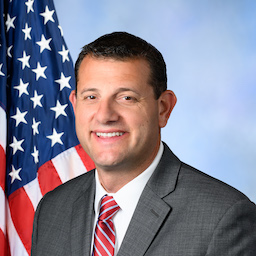- Home
- About
-
Services
- Art Competition
- Community Project Funding Map
- Congressional App Contest
- Congressional Certificate
- Event Request
- Flag Request
- Grants
- Grant Letters of Support
- Help with a Federal Agency
- Inauguration
- Internships
- Kids Page
- Meeting Request
- Service Academy Nominations
- Tour Requests
- Vietnam Veteran Commemoration
- Government Shutdown FAQ
- Issues
- Media
- Contact

Press Releases
Valadao, Trahan Introduce Bill to Support Central Valley Hospitals
Washington,
February 15, 2024
|
Faith Mabry
Tags:
Health Care
Congressman David G. Valadao (CA-22) joined Congresswoman Lori Trahan (D-MA) to introduce the Reinforcing Essential Health Systems for Communities Act.
WASHINGTON – Today, Congressman David G. Valadao (CA-22) joined Congresswoman Lori Trahan (MA-03) to introduce the Reinforcing Essential Health Systems for Communities Act. This legislation aims to create an “essential health system” designation in federal law to make it easier for hospitals in underserved communities to receive funding, grants, and support from the federal government. “We must ensure hospitals in our rural and underserved communities have the resources they need to provide high-quality care for Central Valley residents,” said Congressman Valadao. “The Reinforcing Essential Health Systems for Communities Act will clearly identify the hospitals that serve our most vulnerable communities, allowing critical federal resources to be more easily directed towards them. I’ll continue working with my colleagues on both sides of the aisle to ensure Central Valley families have access to high-quality, affordable health care.” “Essential community hospitals serve the most vulnerable families in cities and towns across the nation, and these facilities deserve the funding and support necessary to maintain and expand their lifesaving services,” said Congresswoman Trahan. “The Reinforcing Essential Health Systems for Communities Act will provide federal lawmakers with the avenues necessary to target funding and resources to these critical facilities – just as we’ve done with other types of hospitals that serve specific populations or regions. I’m grateful to Congressman Valadao for his partnership in leading this commonsense bipartisan proposal to strengthen health care access in the communities we represent.” Background Essential community hospitals are critical components of a city, town, or region’s healthcare network, often serving higher numbers of Medicaid, low-income Medicare, and uninsured patients. To open additional pathways for funding for essential community hospitals, the Reinforcing Essential Health Systems for Communities Act would carve out a new designation, “essential health systems,” in federal law. This change could then be used by lawmakers to better target funding, health equity initiatives, and public health resources to support these nonprofit facilities that serve traditionally vulnerable, under-resourced communities. Hospitals would qualify as “essential health systems” by fulfilling one of three criteria:
### |

